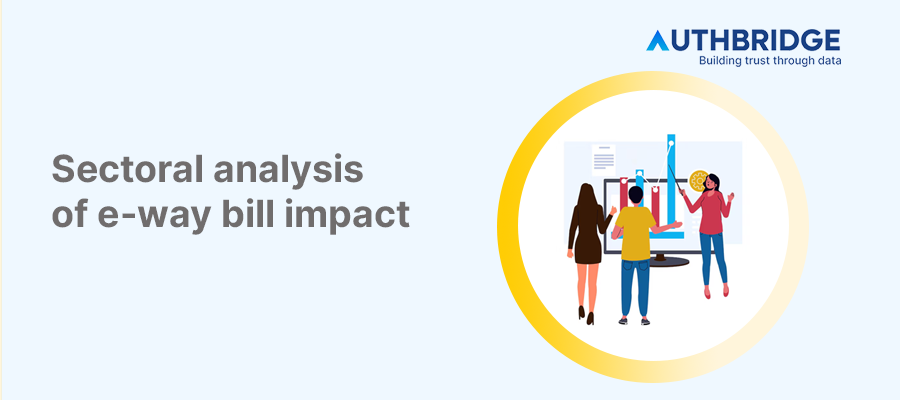Comprehensive Sectoral Analysis Of E-Way Bill Impact On Business Operations And Compliance

Introduction to E-Way Bill Implementation
The E-Way Bill system, introduced as part of India's Goods and Services Tax (GST) reforms, mandates the generation of an electronic waybill for the transportation of goods valued over a certain threshold. This system aims to streamline the movement of goods across state lines, reduce tax evasion, and enhance compliance with GST regulations.
General Impact on Business Operations
The implementation of the E-Way Bill system has had a profound impact on business operations across various sectors. It has led to increased transparency in the supply chain, improved efficiency in logistics and transportation, and a significant reduction in transit times. However, it has also posed challenges, including the need for businesses to upgrade their IT systems and processes to comply with E-Way Bill requirements.
Table 1: General Impact of E-Way Bill on Business Operations
Impact Area | Description |
Supply Chain Transparency | Enhanced visibility into the movement of goods. |
Logistics Efficiency | Reduced transit times and lower logistics costs. |
Compliance and IT Upgrades | Increased need for IT system enhancements to manage E-Way Bill generation and compliance. |
Sector-Specific Analysis of E-Way Bill Impact
Manufacturing Sector
The manufacturing sector has seen significant benefits from the implementation of the E-Way Bill system, with improvements in supply chain efficiency and a reduction in transit times for the delivery of raw materials and finished goods.
Table 2: Impact on Manufacturing Sector
Impact Area | Description |
Supply Chain Efficiency | Streamlined processes and reduced paperwork have led to faster movement of goods. |
Compliance Management | Enhanced ability to track consignments has improved compliance with GST regulations. |
Cost Reduction | Decreased logistics costs due to optimized transportation planning and reduced transit delays. |
Retail and E-commerce
For retail and e-commerce, the E-Way Bill system has facilitated faster shipping and delivery times, crucial for customer satisfaction and competitive advantage. However, the sector faces challenges in managing the high volume of shipments.
Table 3: Impact on Retail and E-commerce
Impact Area | Description |
Delivery Speed | Improved efficiency in order processing and delivery timelines. |
Inventory Management | Better visibility into the movement of goods has enhanced inventory management. |
Compliance Burden | The high volume of transactions increases the complexity of E-Way Bill compliance. |
Logistics and Transportation
The logistics and transportation sector benefits directly from the E-Way Bill system through enhanced route planning and reduced idle time at state borders. However, adapting to digital processes has been a challenge for smaller operators.
Table 4: Impact on Logistics and Transportation
Impact Area | Description |
Route Optimization | Real-time tracking and data analytics enable more efficient route planning. |
Reduced Border Delays | Decreased waiting time at state borders due to pre-verified E-Way Bills. |
Digital Adaptation | Need for investment in technology to fully leverage the benefits of the E-Way Bill system. |
Pharmaceuticals and Healthcare
The pharmaceuticals and healthcare sector has seen improved reliability in the supply chain, ensuring timely delivery of critical healthcare products. Compliance with stringent regulations is also facilitated by the traceability offered by E-Way Bills.
Table 5: Impact on Pharmaceuticals and Healthcare
Impact Area | Description |
Supply Chain Reliability | Enhanced traceability and reduced transit times for critical healthcare products. |
Regulatory Compliance | Easier compliance with health and safety regulations due to improved record-keeping. |
Cost Management | Optimization of logistics costs through better planning and reduced wastage. |
Agriculture and Food Industry
The agriculture and food industry benefits from the E-Way Bill system through improved market access for farmers and reduced spoilage due to faster transportation. Challenges include the need for rural areas to adapt to digital requirements.
Table 6: Impact on Agriculture and Food Industry
Impact Area | Description |
Market Access | Easier access to markets for farmers, leading to better pricing and reduced intermediaries. |
Reduced Spoilage | Faster transportation reduces spoilage of perishable goods. |
Digital Divide | Challenges in digital adoption in rural and remote areas. |
Challenges and Solutions in E-Way Bill Compliance
Across sectors, businesses face common challenges in E-Way Bill compliance, including adapting to digital processes and managing the volume of transactions. Solutions include investing in IT infrastructure, training staff on GST compliance, and leveraging technology solutions for automation and efficiency.
Future Trends and Predictions for E-Way Bill Impact
Technological Advancements and Integration
The future will see increased integration of technologies like AI, IoT, and blockchain with the E-Way Bill system, offering greater efficiency, transparency, and security in the movement of goods.
Regulatory Changes and Sectoral Adaptations
Ongoing regulatory refinements and sector-specific guidelines are expected to further streamline E-Way Bill processes, reducing the compliance burden and fostering growth across industries.
Category

Abhinandan Banerjee
(Associate Manager - Marketing)
Abhinandan is a dynamic Product and Content Marketer, boasting over seven years of experience in crafting impactful marketing strategies across diverse environments. Known for his strategic insights, he propels digital growth and boosts brand visibility by transforming complex ideas into compelling content that inspires action.



